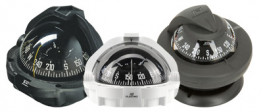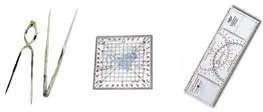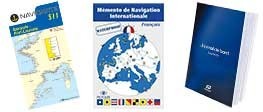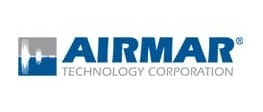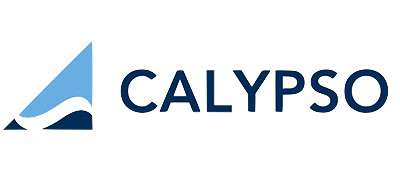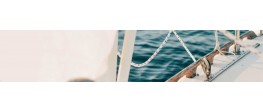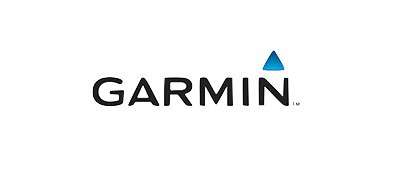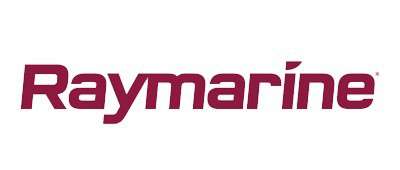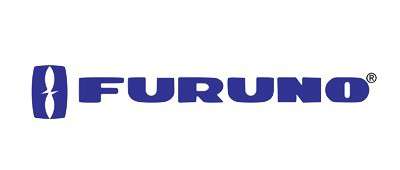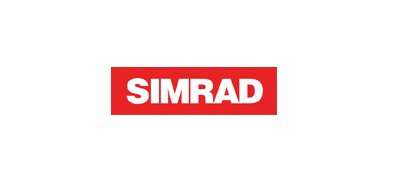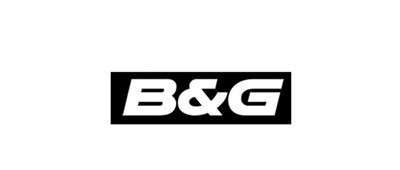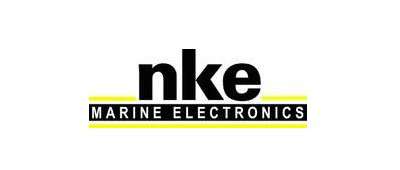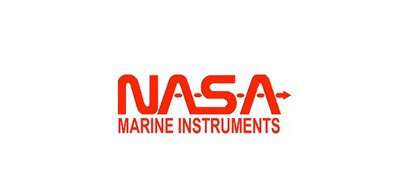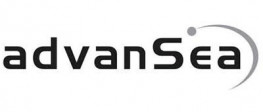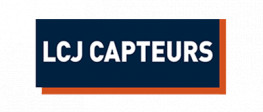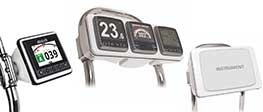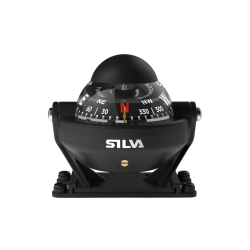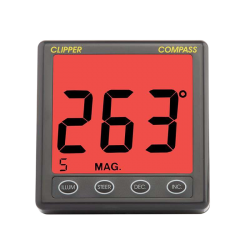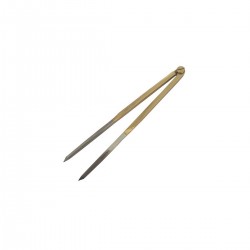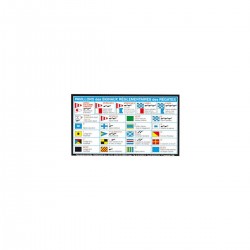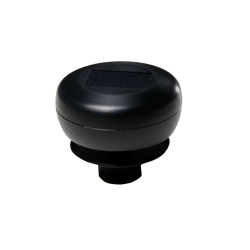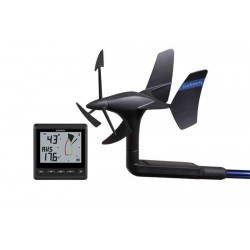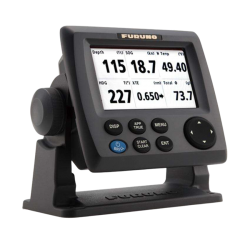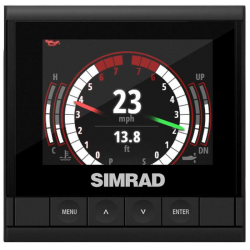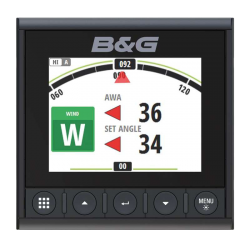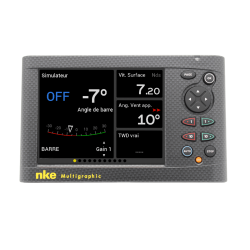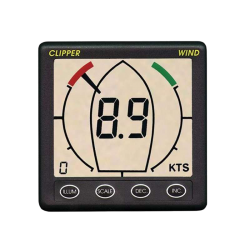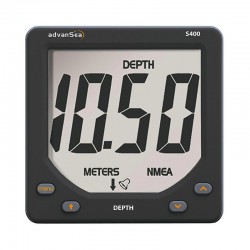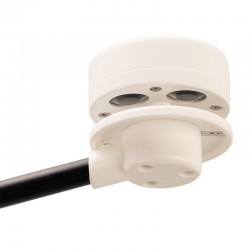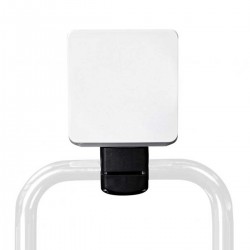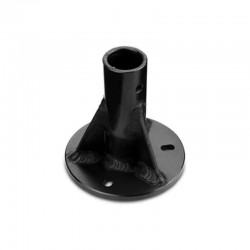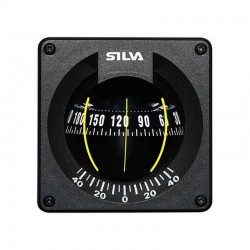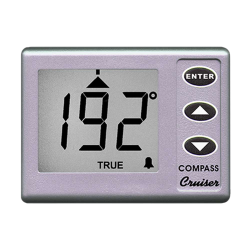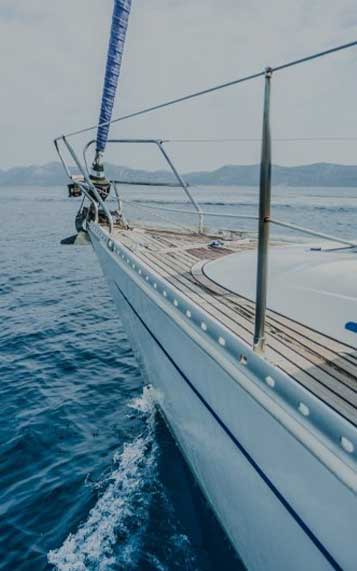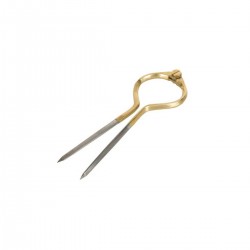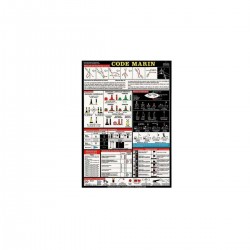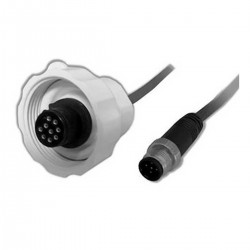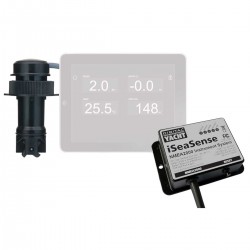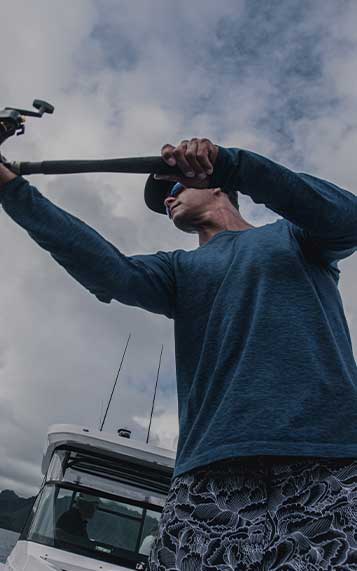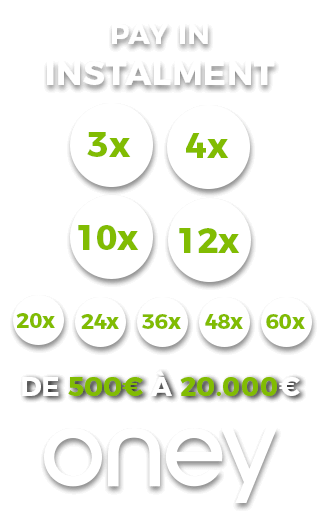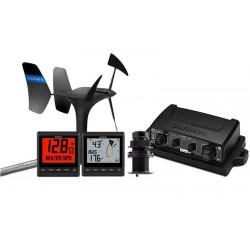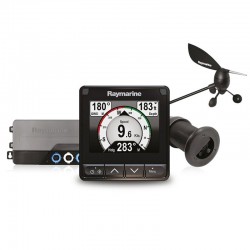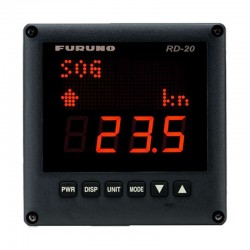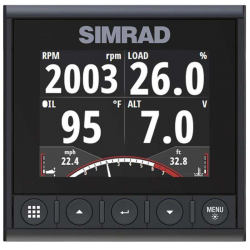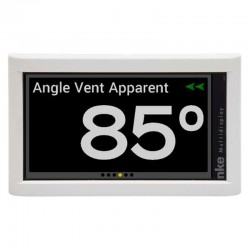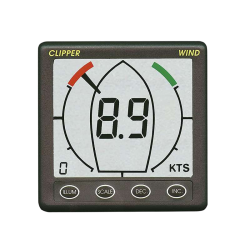Instrument and navigation
Depth sounder, loch-speedo, wind vane, course compass: all the information you need for smooth sailing can be found in the cockpit of your boat. If you're a regatta sailor, put the accent on performance with instruments NKE or B&G Triton for maximum real-wind information, with the option of entering boat-specific data (polar charts), and displaying the wind with an upwind magnifier, VMG... If you're looking for a marine navigation radar, we've got just what you need in the "radar" category
Find all the leading brands (Raymarine, Garmin, NKE, Calypso...) of wind vane, anemometer, loch-speedo, tridata, clipper, sensor, display, control unit, sounder ... at the best prices at Comptoirnautique.com, the French specialist in marine electronics.
- -€115.92
Pack d'instruments iSeaSense pour bateau
- -€41.75
- -€106.75
Pack Instrument i70s: Anemo wind vane + 1 Loch/depth sounder DST800
- -€286.75
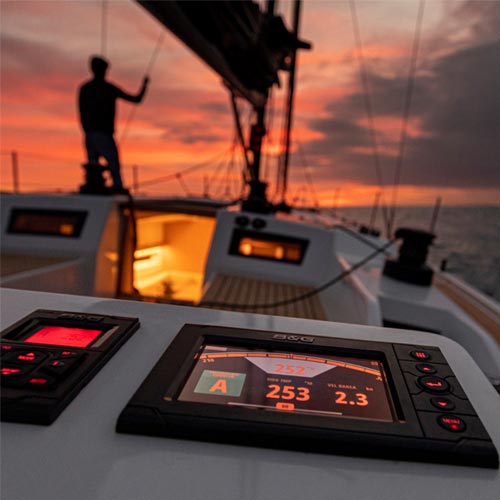 |
THE NAVIGATION CENTER :The navigation center groups together the instruments required for navigation: windvane, loch-speedo, gps, depth sounder... It cross-references the data generated by these various sensors and instruments, enabling you to visualize navigation information (heading, wind, true speed, speed over ground, relative speed, angle of heel, GPS position, rudder angle, depth, engine info, etc.) on a multifunction display such as the Tacktick for example, and derive the best course/speed compromise, or VMG . A central navigation unit gathers all the information essential for safe and efficient navigation. Thanks to instruments such as the wind vane, anemometer, GNSS receiver, etc., it compiles data on heading, speed, position and depth. This allows you to clearly visualize your route parameters on a multifunction display. Some control units, such as the B&G and Simrad models, can even analyze this information to automatically optimize your route and highlight key indicators. They are ideal for racers who want to get the most out of their boat. This data can then be sent to autopilot, which in turn can send orders to the rudder to change angle, for example. The latest innovations from the market's leading brands (NKE, Simrad, B&G, Garmin) enable ECUs to compile a vast amount of information and efficiently automate navigation by connecting to your multifunction displays. All these on-board technologies, widely used in regattas, are accessible to both pleasure and powerboats. |
THE NMEA 2000 NETWORKAll your on-board instruments can be interconnected via the NMEA 2000 (or N2K) network. Each instrument or sensor is able to "converse" with the others via this wired system and its standardized norm. It constitutes your internal network, making it easier to steer, optimize your route and monitor certain components of your boat, such as the engine, for example. This standard has replaced NMEA 0183, which was slower to transfer data and had less interconnection capacity. Most of your instruments can be easilyconnected to NMEA 2000: GPS, anemometer, autopilot, speedo log, digital compass, gyro, engine, rudder, depth sounder, and even VHF radio,AIS and man-overboard systems. This information can then be analyzed by a computer and managed from a display interface, to highlight your navigation data: boat speed, wind speed, gps data, etc. In this way, your navigation system can also display engine parameters, alert you to depth, or integrate information from a depth sounder or radar. Some models, such as NKE displays or Raymarine control units, take sharing even further by offering accessory control. For example, they can send commands to autopilot. Practical for supervising all your boat's navigation functions from a single, ergonomic interface. Our passionate experts at Comptoir Nautique are at your disposal to answer any questions you may have concerning stock availability, prices, shipping and delivery of your orders, as well as technical points concerning products and instruments. |
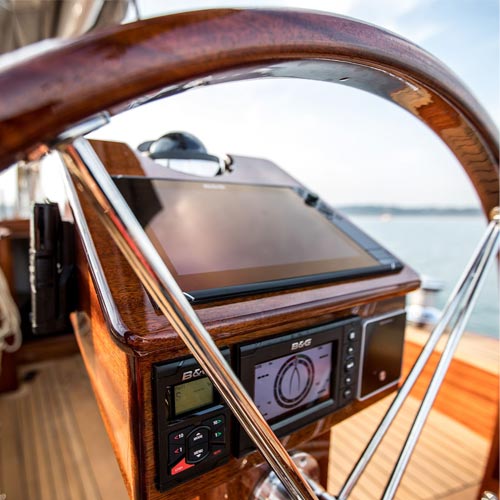 |

